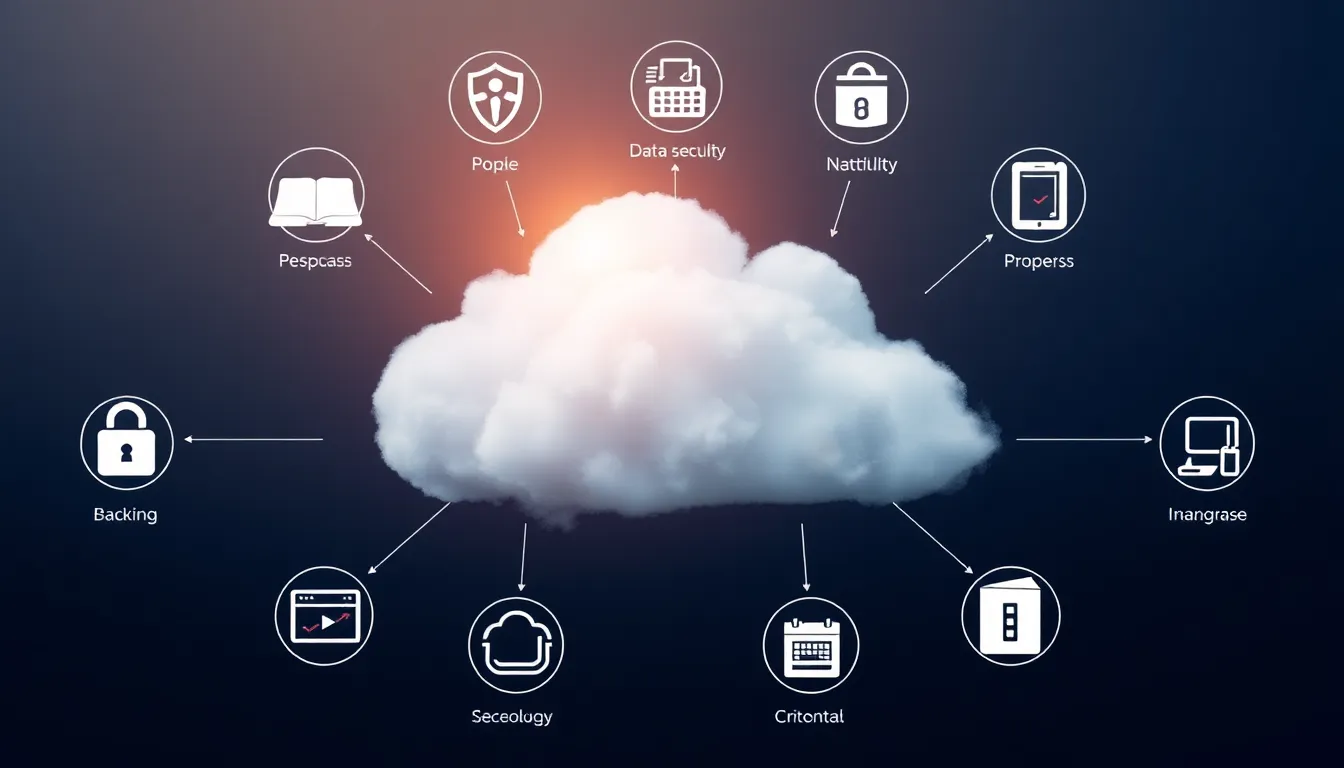In an age where digital information is paramount, the importance of data backup solutions can’t be overstated. Every day, businesses and individuals generate vast amounts of data, making it crucial to have a reliable strategy in place to protect that information. From accidental deletions to hardware failures, the risks are ever-present, and the consequences of losing critical data can be devastating.
With a variety of backup options available, choosing the right solution can feel overwhelming. Cloud storage, external drives, and automated backup systems each offer unique advantages. Understanding these options is essential for anyone looking to safeguard their valuable data. This article will explore the best data backup solutions to ensure peace of mind and security in an increasingly digital world.
Overview of Data Backup Solutions
Data backup solutions play a vital role in safeguarding digital information. Understanding these solutions ensures individuals and businesses can efficiently protect their data from loss.
Importance of Data Backup
Data backup is crucial for preventing loss from accidental deletions, hardware malfunctions, or cyberattacks. Statistics indicate that 60% of companies that lose their data will shut down within six months. Regular backups minimize financial risks, ensure regulatory compliance, and maintain business continuity. By implementing a reliable backup strategy, users can recover quickly from data loss, mitigating operational disruptions.
Types of Backup Solutions
Several types of backup solutions exist, catering to various needs:
- Cloud Storage: Offers off-site data storage via remote servers, providing accessibility and scalability. Popular services include Google Drive, Dropbox, and Amazon S3.
- External Drives: Provides physical storage devices like USB drives, external hard drives, and SSDs for manual backups. These devices offer fast access and portability.
- Automated Systems: Employ software to automate backup processes, ensuring regular backups without user intervention. Examples include Acronis True Image and Veeam Backup & Replication.
- Hybrid Solutions: Combine cloud and local storage methods, offering both immediate access through external drives and off-site protection via cloud services.
Selecting the appropriate data backup solution requires assessing needs, resources, and potential risks.
Cloud-Based Backup Solutions

Cloud-based backup solutions offer a reliable way to safeguard digital data. These solutions provide remote storage options that ensure data remains accessible and protected against various threats.
Benefits of Cloud Backup
- Scalability: Cloud backup solutions easily adjust storage space based on evolving data needs.
- Accessibility: Users access data anytime and anywhere with an internet connection, enhancing convenience.
- Automatic Backups: Many services include automation features, ensuring backups occur regularly without user intervention.
- Cost-Effectiveness: Cloud backups often reduce the need for physical hardware, minimizing upfront costs and maintenance.
- Data Security: Advanced encryption and security protocols protect data from unauthorized access and cyber threats.
- Disaster Recovery: Quick restoration options allow users to recover data promptly in the event of loss or corruption.
Popular Cloud Backup Services
| Service | Features | Price Range |
|---|---|---|
| Backblaze | Unlimited storage, automatic backups | Starting at $7/month |
| Carbonite | Continuous backups, file versioning | Starting at $6/month |
| Acronis | Cloud and local backup, ransomware protection | Starting at $49.99/year |
| Google Drive | Integrated with Google Services, easy sharing | Free up to 15 GB, paid options available |
| Dropbox | File synchronization, collaboration tools | Free up to 2 GB, paid options available |
| Microsoft OneDrive | Seamless Office integration, file sharing | Free up to 5 GB, paid options available |
Each cloud backup service offers unique features tailored to different user needs, ranging from personal use to enterprise solutions.
On-Premise Backup Solutions
On-premise backup solutions provide businesses and individuals with a reliable method to store data locally, ensuring full control over their backups. These solutions safeguard against data loss caused by hardware failures or other localized threats.
Advantages of On-Premise Backups
- Control: Organizations maintain complete control over their data, eliminating reliance on third-party services.
- Speed: Local data retrieval allows for faster access compared to remote solutions, enhancing operational efficiency.
- Customization: Businesses can customize backup strategies according to specific requirements, such as scheduling and storage formats.
- No Subscription Fees: On-premise solutions typically involve a one-time investment, reducing ongoing costs for data management.
- Compliance: Storing sensitive data on-site may help meet regulatory requirements for certain industries, such as healthcare and finance.
Recommended On-Premise Backup Tools
| Tool | Features | Price Range |
|---|---|---|
| Acronis True Image | Disk imaging, ransomware protection | $49.99/year |
| Veeam Backup & Replication | High availability, cloud integration | Starts at $42/month |
| EaseUS Todo Backup | Incremental backups, disk cloning | Free or $29.00/year |
| Macrium Reflect | Image-based backup, rescue media creation | Free or $69.95/year |
| StorageCraft ShadowProtect | Bare-metal recovery, virtual-to-physical migration | Starts at $49.00/year |
These tools represent reliable options for implementing on-premise backup solutions, catering to various business sizes and requirements.
Hybrid Backup Solutions
Hybrid backup solutions combine both on-premise and cloud storage, offering a versatile approach to data protection. This strategy enables users to benefit from the speed of local backups while leveraging the safety of off-site storage.
What Are Hybrid Solutions?
Hybrid solutions involve a dual-storage strategy, where data is simultaneously stored locally and in a cloud environment. Local storage, such as external hard drives or network-attached storage (NAS) devices, offers quick access to data, facilitating faster recovery. The cloud component ensures redundancy and protection against local disasters, such as fire or theft. These solutions are tailored to accommodate the varying needs of businesses and individuals, addressing the challenges of data loss while maximizing recovery capabilities.
Pros and Cons of Hybrid Backups
Pros
- Redundancy: Data stored in multiple locations minimizes the risk of total loss.
- Quick Recovery: Local backups allow for faster access and retrieval of critical data.
- Scalability: Users can easily adjust cloud storage capacity as data needs grow.
- Cost-Effectiveness: Hybrid solutions offer a balance between upfront investments and ongoing cloud costs.
- Security: Combining local and cloud storage enhances overall data protection.
Cons
- Complexity: Managing both local and cloud backups may require additional knowledge and resources.
- Cost Variability: Ongoing cloud storage fees can fluctuate based on usage.
- Data Transfer Times: Initial data migration to the cloud can take significant time, especially for large datasets.
- Dependency on Internet: Cloud access relies on stable internet connectivity, impacting recovery speed in case of outages.
- Compliance Risks: Users must ensure both storage locations comply with relevant data protection regulations.
Choosing the right data backup solution is essential for anyone looking to protect their valuable information. With the increasing threats of data loss from various sources it’s crucial to evaluate the options available. Whether opting for cloud storage on-premise solutions or a hybrid approach each method offers unique benefits tailored to different needs.
Investing in a reliable backup strategy not only safeguards against potential losses but also ensures compliance and business continuity. By understanding the strengths and weaknesses of each solution individuals and businesses can make informed decisions that best fit their requirements. Prioritizing data backup is a proactive step toward securing one’s digital future.
